Theater of Combat
The recently published “Acts of War: Iraq and Afghanistan in Seven Plays” collects seven works for the stage, all of them about war. Here are excerpts from two of those plays, “9 Circles” by Bill Cain and “American Tet” by Lydia Stryk. A review of the book will be published in this column Friday.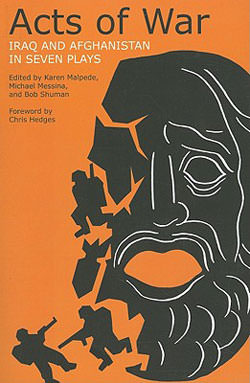
Excerpts from two of the plays featured in “Acts of War: Iraq and Afghanistan in Seven Plays” — Bill Cain’s “9 Circles” and Lydia Stryk’s “American Tet.”“THE TRIAL OF DANIEL EDWARD REEVES”
(From “9 Circles,” a play by Bill Cain)
Lawyer for the Defense.
The LAWYER from Circle 5 defends Daniel who is sitting center. Listening. Weighing.
The key element of this scene will appear later – word vs. flesh. We begin with word.
The crime we are discussing only ended in Iraq. It began in a recruiting office in Texas.
There – a recruiting officer met a deeply troubled 19-year-old with convictions for alcohol, drug abuse, violence. He had a personality disorder and everybody in town knew it. To make his quota, this recruiting office obtained a morals waivers for him, and this disturbed young man was soon strapped up with world class weaponry to fight in a war so lacking in popular support that an army could not be assembled to fight it – without candidates like this young man.
Lawyer for the Prosecution.
THE WOMAN enters – professionally dressed.
I’m all for sympathy for the soldier, but mustn’t someone speak for the girl.
A cotton dress. I want to speak to you about a cotton dress.
Young girls need protection. The girl we are concerned with – living in a war zone – needed more than most. She had a cotton dress.
She had had another defense – her family. But a soldier deprived her of the protection of her family when he herded her father, her mother and 4-year-old sister into the family bedroom and murdered them in cold blood.
This soldier then proceeded from the bedroom to the living room where two of his fellow soldiers were holding the girl on the floor and – against them – against him – the protection of a cotton dress was not sufficient. This is the crime we are investigating.
Acts of War: Iraq and Afghanistan in Seven Plays
By Karen Malpede (Editor); Michael Messina (Editor); Bob Shuman (Editor); Chris Hedges (Foreword by)
Northwestern University Press, 400 pages
OK. Let’s investigate the crime. Starting with the murder.
Let’s look at the weapon.
He looks around. Finds none.
We cannot.
Let us investigate the rape. Let’s examine the DNA evidence. (he looks around/nothing) None…OK, then. Let’s – Let’s take a look at that cotton dress.
No dress? (to the Prosecution) Do we ever know if the dress was cotton?
There are photographs.
Without a single bit of evidence to back them up – for all we know they could have been taken on a studio back lot.
Strange trial in which there is absolutely no evidence.
There is testimony.
There is a flood of testimony. (to the audience) Every bit of it coming from men and women who outrank my client placing every bit of the blame on him – the lowest ranking man involved in this incident.
A ritual was invented in the ancient near east – not far from where the events we are discussing took place. For terrible crimes, all blame was placed on an animal and the animal was driven into the wilderness to die.
We are more enlightened now. We would never allow an animal’s life to be sacrificed. And yet. Our government – from the president on down – is calling for the scapegoating of a young man – the lowest ranking man involved in this admittedly horrifying event.
What we are discussing did not take place in the mythic past, but in the nearly immediate present. It was not a symbolic action. It was not an “event” or an “incident.” It was a crime. Very real. Very brutal. And, in it, rank is absolutely immaterial. Nuremberg made that quite clear. A solider of any rank is responsible for his moral choices.
A moment. Then –
He’s my lawyer, but I like her. Reeves rises.
This isn’t about me. Go on.
He changes out of his prison jumpsuit.
While the attorneys continue their impassioned words, REEVES strips naked, washes himself and dresses in clean white tee-shirt, distinctive under-pants – diaper actually- , new institutional white pants. The trial continues over the physical, ritual transformation of Reeves.
The testimony. Though much of the testimony in this case is compromised, there is one unimpeachable witness – the accused himself. He told people he was out to kill.
No dispute there. (with some enthusiasm)
Daniel Reeves told anyone who would listen he intended to kill. He wanted to kill everybody. More specifically, all Iraqis.
To his everlasting credit, he sought help. He went to an army psychiatrist, asked for help, was given unrecorded medication, told to get a night’s sleep and was recycled the next day to patrol the area known as The Triangle of Death. With disastrous consequences. What were his superiors expecting?
I want to be careful here.
I too, think it is admirable that a troubled soldier sought help. And the army was remiss in not providing more help than it did. No question. However. There is a conclusion to this seeking for help that the Defense does not draw.
The Defense has – condescendingly – portrayed Mr. Reeves as an animal. A goat and that is not fair. Mr. Reeves is a man, a smart young man. He may have been under-educated when he was inducted into the army, but he educated himself along the way. He learned.
He learned some Arabic. Leadership skills. Even moral virtue – loyalty – brotherhood – self-sacrifice. He availed himself of his opportunities and, troubled by his desire to kill, he – sought – help. And the logical conclusion of this is – unfortunately –
He knew what he was planning on doing – was wrong.
He knew it was wrong.
And he did it anyway. This crime deserves – it demands judgment.
Let’s say it does. Who then can judge this man?
And it is at this point that Nuremberg becomes instructive. Who were the judges then? Who was the jury?
They were the ones who said “no.” Not in casual conversation, but with the commitment of their lives. Not the ones who financed the war with their obedient taxes. Not the ones who have not said no to this insane useless violence. Who has the right to judge this man?
Anybody who stood in front of a recruiting center and said, “No.” “You can’t have them.” “Not if this is what you are going to do with them.” “This is not what we do with our young.”
If that’s who you are – judge. If not – don’t. Not even in the secrecy of your thoughts. You – no – We – We haven’t the right. How could we? We hired him. We paid his salary. We were his employers. As he completes his case, Prosecution takes stage.
This is not – not – about the war. This is about a young girl.
The Defense wants to tell you who you are in this case, but you already know. You are the rule of law. You are a young girl’s last line of protection. What her family could not do – what a dress could not do – you can. The law is in your hands. Her final fate – is in your hands.
The choice is yours. Guilty. Or not? Consider your decision.
Acts of War: Iraq and Afghanistan in Seven Plays
By Karen Malpede (Editor); Michael Messina (Editor); Bob Shuman (Editor); Chris Hedges (Foreword by)
Northwestern University Press, 400 pages
REEVES stands for a long moment. Long enough for the audience to make a decision.
Permission granted by Abrams Artist Agency, 275 Seventh Ave., 26th Floor, New York, NY 10001. All inquiries concerning rights to the play shall be addressed to the above or to [email protected]. “9 Circles” is the winner of the 2010 Sky Cooper New American Play Prize at Marin Theatre Co., where it received its world premiere under the leadership of Jasson Minadakis, artistic director, and Ryan Rilette, producing director.
(From “American Tet,” a play by Lydia Stryk)
(The Chinese Restaurant. After hours. ELAINE and NHU sit together at a booth.)
NHU: He was the son of mighty king. Rich, powerful. The whole works. That kid was spoiled rotten.
(ELAINE and NHU laugh.)
NHU: But he had a secret.
ELAINE: What was that?
NHU: There was a little voice inside him. Like child pulling on your skirt. ‘This life, it said, it’s not for you. You gotta go. You gotta get out of this place,’ like the song says.
ELAINE: (Singing) “We gotta get out of this place, if it’s the last thing we ever do …”
(They laugh.)
NHU: That’s right. Yeah. (Continuing) The boy was very restless. Now his daddy wasn’t stupid. He knew something was wrong. So he sits and thinks. That boy needs air, adventure, fire in his belly. That’s all he needs. Yeah. So he gives him fastest horse in the kingdom and the boy rides off. But the kingdom was inside high wall, you know? So the new freedom of the boy was an illusion. Like all freedom.
ELAINE: Freedom is an illusion, Nhu? Hmm. That’s not what they taught us in school.
NHU: (She takes this in, goes on) So the boy rides off on the horse, and the first thing he sees is a very old man. Now you gotta remember that this boy was protected from everything. Every reality of life. And now he’s seeing old man for the first time. And he says to his servant. ‘What is wrong with that man?’ And the servant has to tell him. ‘Master, he’s just old. All of us end up like that.’ ‘What?’ says the boy. ‘Like that? … What kind of a world is this, that we all end up like that?’
ELAINE: I know exactly how he feels.
NHU: And he turns his horse around. And he rides—like the wind — back to the palace. And he locks himself in his room. He won’t come out. But next morning, off he goes again. And this time, there’s a young beggar with baby on her breast leaning against the palace wall. And the boy sees that she is so hungry she has become mad. How does he know this? That is a mystery.
ELAINE: (Completely involved) Huh …
NHU: The boy becomes sick to his stomach.
But the next morning, he is off again. And now, it is like he can’t stop, you know? But then the horse stops. It won’t move. Because there is dead young soldier lying in the road. His throat is slashed and his stomach is cut open and his guts are stuffed in his mouth. And his penis has been taken away as trophy. And his face has been eaten by worms and flies. He has no face left. ‘Who did this?’ cries the boy. ‘Your father’s army’, says the servant, ‘We’re at war.’ ‘War?’ the boy asks. ‘We’re always at war’, the servant says. ‘But war is glorious!’ the boy says. And the servant, he just shrug his shoulders.
(NHU stops. She looks at ELAINE, who is visibly disturbed by this last section of the story. There is a pause. ELAINE seems to recover, smiles encouragingly at NHU.)
ELAINE: Go on.
NHU: And the boy stops there. He doesn’t turn back. He feels angry. He feels betrayed. New feelings that make him very tired. He gets off his horse. He has to rest. He sits down against a tree. It’s a fig tree. The Bo-Tree. And he stays there, and he doesn’t move. He sits and sits and sits.
At first, he sees old man and beggar woman and soldier in front of his eyes. They won’t go away. And then, they are inside him, you understand? Inside his body. He is old, and hungry. He feels terrible pain caused by soldier’s torturers. He suffers. But he doesn’t move. He sits.
He sits for seven weeks and by fifth week, he is no longer separate from the earth or the tree. He is the earth. He is the tree. He is his breath.
And by the seventh week, he is the Buddha.
ELAINE: Does he go home?
NHU: He never goes home. Home?! He never gets up! If he gets up, he will step on an insect or blade of grass. He sits.
So, that’s why the Buddha is so peaceful.
ELAINE: Danny’s coming home. From Iraq. On leave. It’s only three weeks, but that’s all you get. So, we’re celebrating.
“American Tet” was originally published by Broadway Play Publishing and is available through its website, www.broadwayplaypubl.com/. Lydia Stryk is the author of more than a dozen other plays. Her work has been seen at festivals across the United States and produced at theaters in both the U.S. and Europe. She is the recipient of a Berrilla Kerr Playwright Award. Her website is www.lydiastryk.com.
Your support matters…Independent journalism is under threat and overshadowed by heavily funded mainstream media.
You can help level the playing field. Become a member.
Your tax-deductible contribution keeps us digging beneath the headlines to give you thought-provoking, investigative reporting and analysis that unearths what's really happening- without compromise.
Give today to support our courageous, independent journalists.


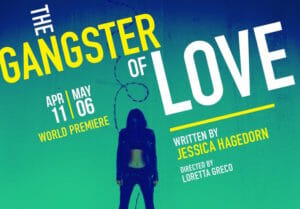
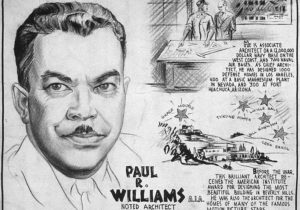
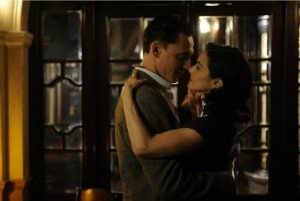
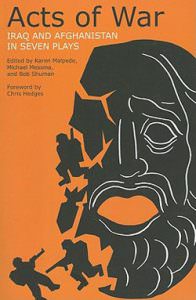

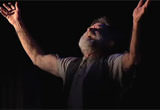


You need to be a supporter to comment.
There are currently no responses to this article.
Be the first to respond.